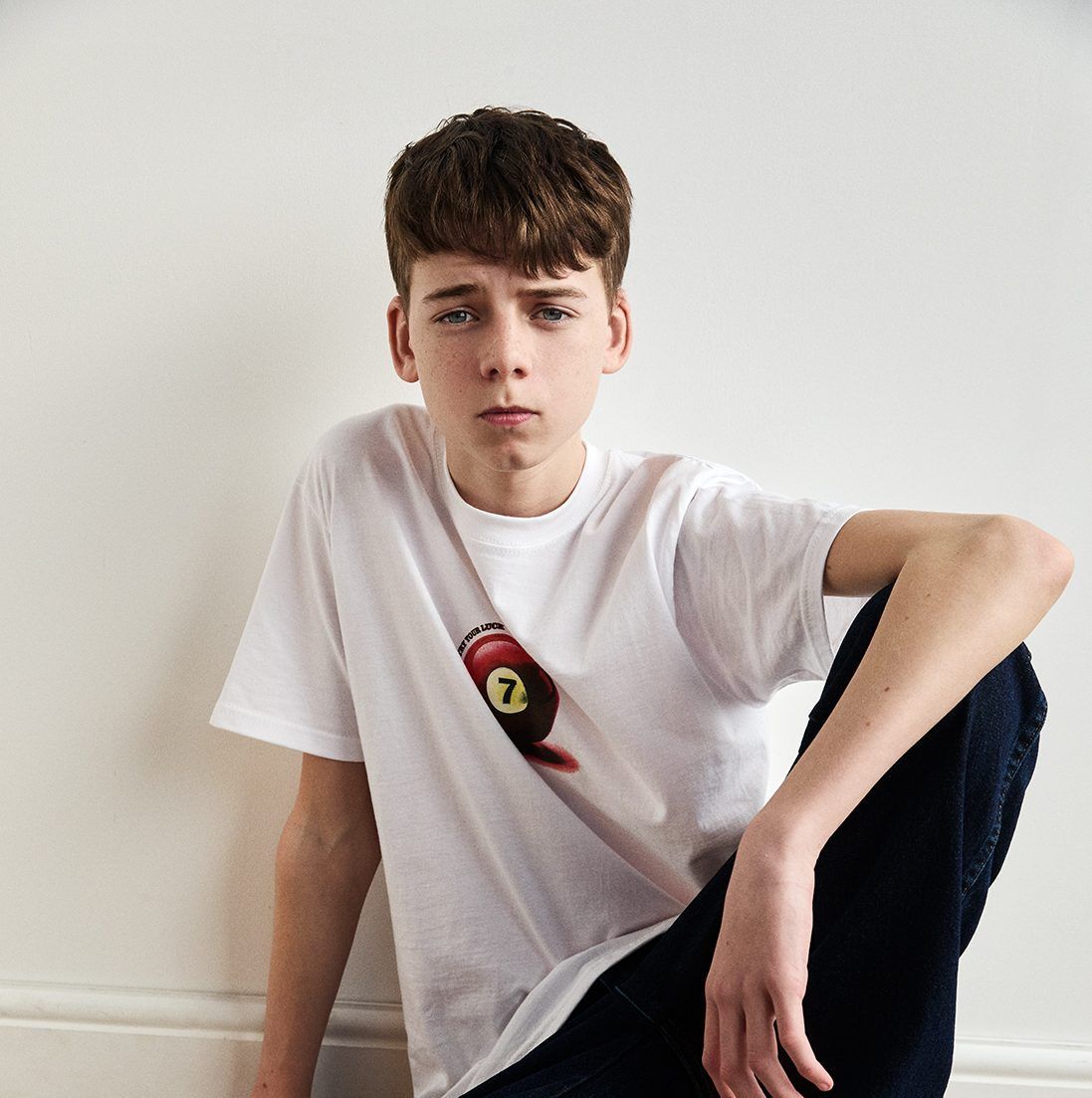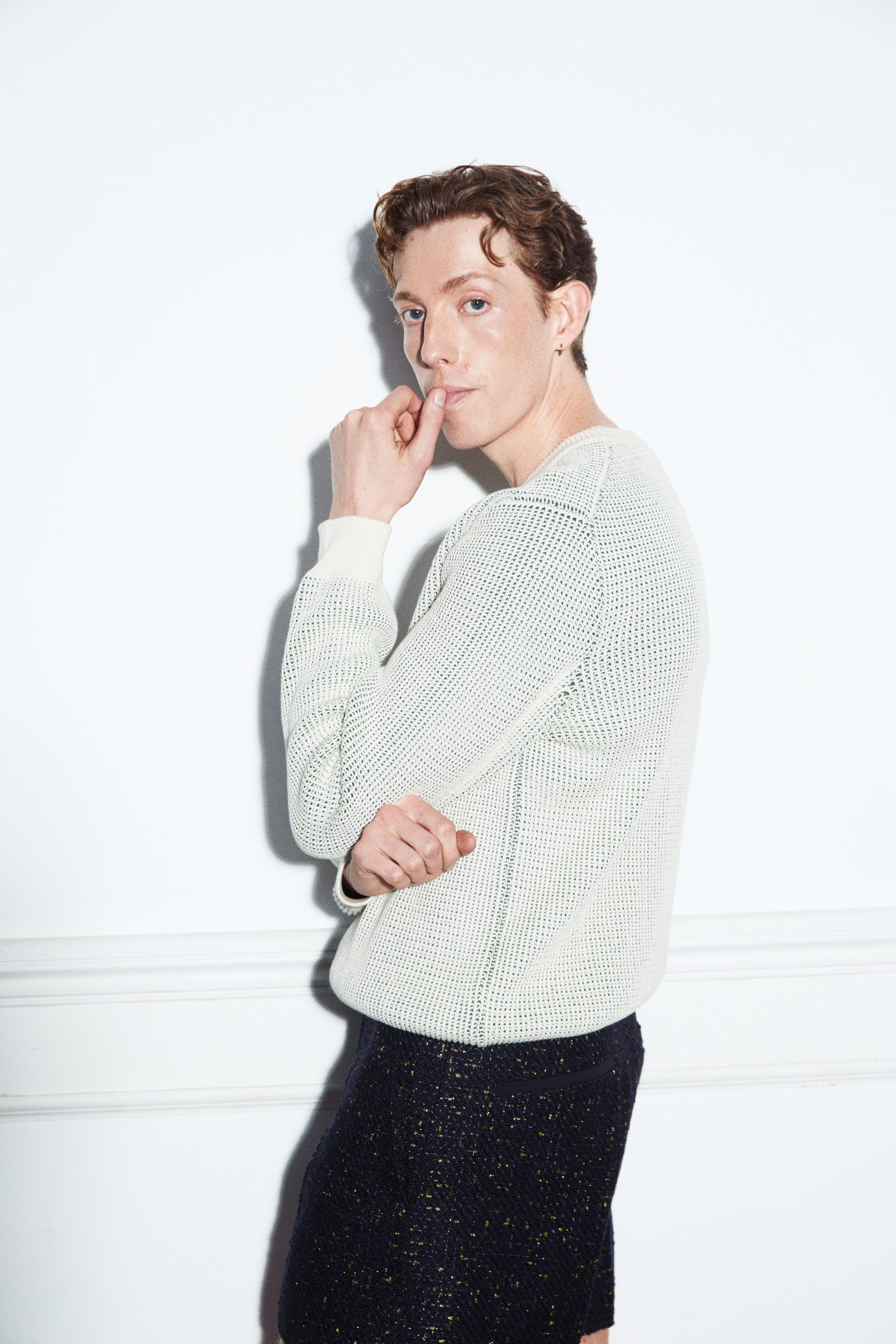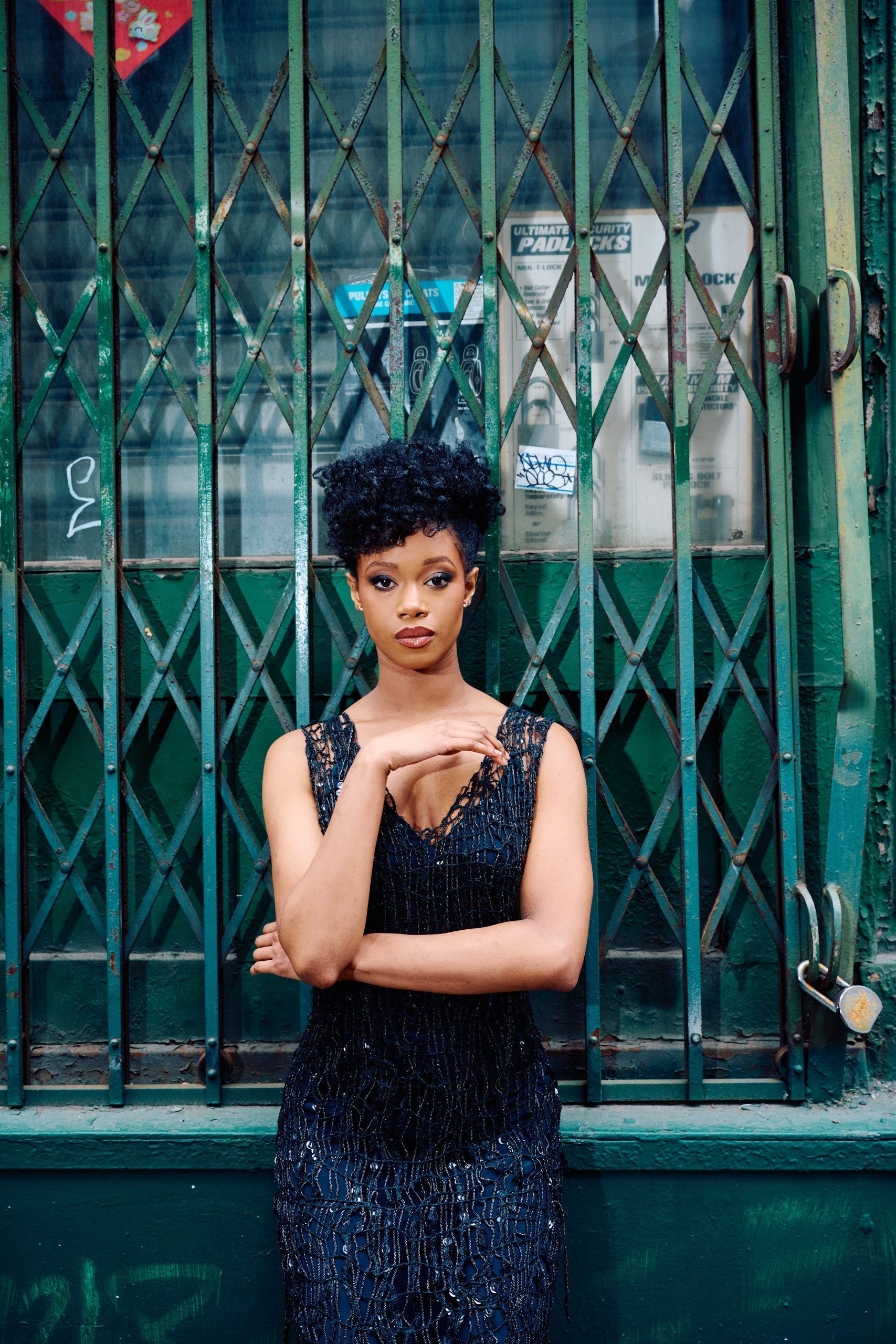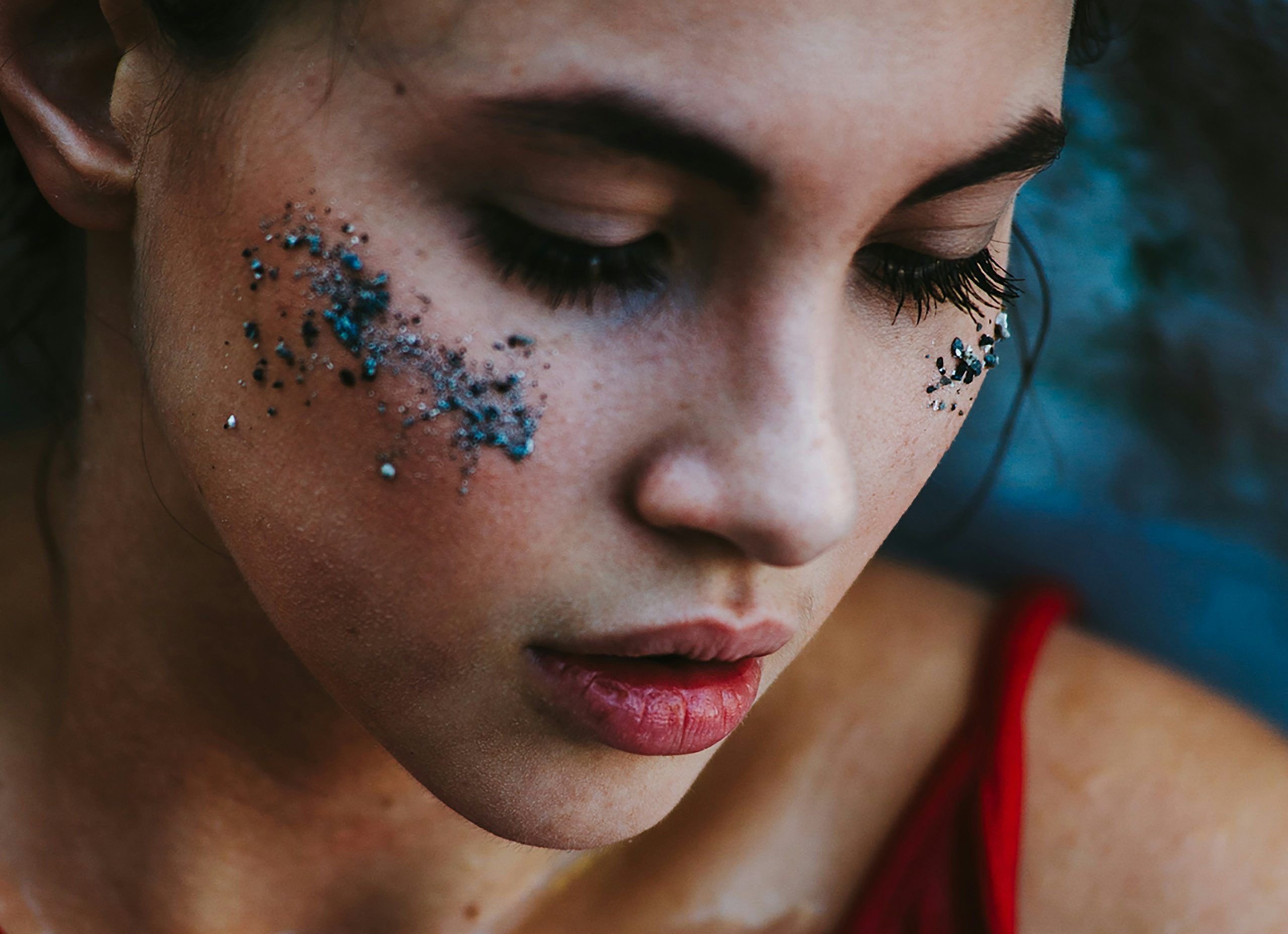It feels as if everything actor Ben Aldridge has done so far in his career has been leading him to his new role in The Long Call.
Some might believe it’s cheesy to think that some roles are meant for certain people, but when it involves Ben Aldridge and The Long Call, there is no other actor that could play the part. His role in the ITV adaptation of the novel by Ann Cleeves is groundbreaking for several reasons, both for representation as a whole and for Aldridge personally. As Detective Inspector Matthew Venn, Ben Aldridge can claim something no other actor can: he’s the first queer male lead of a detective show. Although it’s astonishing to discover there has yet to be one single detective TV show that has a queer male lead, it’s one that Aldridge wholeheartedly embraces as Venn, a reserved and introspective character that returns to his once-home of Devon to investigate a murder after 20 years of being exiled from his home due to his sexuality and his lack of belief in his faith. It’s a role that does more than just draw comparisons between Aldridge and his character–they are seemingly two sides of the same coin.
Aldridge approaches The Long Call with the same amount of reverence as all of his past projects (Fleabag, Our Girl), but this role, in particular, allowed him to do much more than just merely act; he was able to reflect on his own murky relationship with his religious upbringing, what it was like to grapple shame, identity, and sexuality as an adolescent, and how the way we are all raised shapes us into who we are today. It’s a job that feels like it was so much more than just a role, but one that gave Aldridge the space to understand his past.
Ben Aldridge chats with 1883 Magazine’s Kelsey Barnes about his role in ITV’s The Long Call, portraying a queer detective, his own religious upbringing and reflecting on his identity, and more.
Your first professional acting credit was back in 2008; how would you describe how you’ve grown as an actor between then and now?
Oh my god! [Laughs] Was Compulsion my first credit?
I believe so, you played the boyfriend.
Well, that sounds right as I’m always playing the boyfriend! That and A Baptism of Fire were both around the time of my last year at drama school and both jobs involved a lot of intimate love scenes. Now those scenes are less intimidating because they have changed drastically because of the incredible work by intimacy coaches. I was able to work with Parminder Nagra on Compulsion and I was such a huge fan of hers, so to work on my first job with someone I admire meant a lot to me. We spent the morning in bed doing all of this embarrassing love scene work and I just remember feeling so overwhelmed. The drama school I attended didn’t do a lot of TV training at all so a lot of that just came from working constantly.
There’s this theory that you learn a lot in drama school but you grow so much afterwards that you don’t even know what acting is until you’re five years into it. I’m always doing as much as I can to learn from the people that I’m working with and I’ve been afforded the luxury of learning on the job, like in the scene in Compulsion. It’s done through osmosis. I hope I’ve grown a lot, I certainly feel like I’ve grown. One of the key things is confidence, but a nice amount of course! [Laughs] There’s a difference between confidence and arrogance. I was very unsure of myself when I first started as a professional actor. I was constantly watching myself back and picking apart things and I don’t think we, as humans, are designed to do that.
That’s how I feel listening back to myself when I conduct interviews like these!
Exactly! It’s part of the job but being confronted with who you are and your image from all angles… is a lot to deal with. For me, the first few times felt quite disturbing actually, but now I see it from a place of vulnerability and strength within myself. Those beginning years I found it very difficult but now I try to be better at being kinder to myself rather than judging myself harshly. I’m always asked by wonderful journalists like yourself about what is the most challenging thing about this part or role and, honestly, it is only ever a privilege to act. It’s such a privilege to get to do it rather than just auditioning the entire time. I’ve never tried to view it as some hardship because I’m so lucky to be here doing what I’m doing, but I think what has been challenging the most to me are those internal voices that try to sabotage you, your confidence, and pick at your insecurities. Those are things that this job is full of and so many actors had to overcome and work on it even if they don’t talk about it very much. I’d say those are the things that have changed for me which I feel has allowed me to be a better actor.
The industry is so fickle and can feel demoralizing at moments. You’re both dealing with an internal struggle with watching yourself and all of your mannerisms while also trying to hustle and get auditions and book roles. You really put yourself through it!
Absolutely. It’s the scientific dilemma; it’s the best job when it’s going well and it’s the worst when it’s hard!
Let’s chat about The Long Call, ITV’s new drama that is based on the novel by Ann Cleeves. You play DI Matthew. Can you tell me a bit about the show and your character?
The Long Call is about DI Detective Matthew returning to his home after 20 years of religious ex-communication on the grounds of his sexuality when he came out at 18. I personally believe, because of his struggles with accepting his faith and sexuality, he denies the former. He returns to his “home” to solve a murder that intertwines his personal life with the case itself which forces him to confront his past relationships with his mother, his church, and the people around him. He’s pushed to go on a deeper personal mystery that examines the tensions between pride and shame.
Without giving too much away, he discovered he actually isn’t as progressive or as prideful as he would like to be. Even though we’re in a time where it’s been better than ever for a large portion of people in the LGBTQ+ community living in our country, it still isn’t easy for people. We’re still underpinned by a sense of shame and I think we’re often not prepared to talk about it or confront it even amongst our own community. I think what’s surprising here is that Matthew was even surprised that he still has work to do on that and, essentially, he is still very informed and shaped by who and what he is based on his upbringing.

There’s a bit of a parallel between Matthew’s life and yours as someone who also grew up religious and working through that. I believe it was an interview in 2019 where you state how you underestimated the impact of your upbringing and even further underestimated existing without faith in your life, which I feel like Matthew is starting to realize as we see in flashbacks. What was it like reflecting on your own experiences while Matthew is doing the same?
I had to really reflect on my time growing up in a religious community, although mine wasn’t as strict and hardline as the one in The Long Call. I had knowledge of it as my parents both grew up in something similar and then I also have my own experience of growing up evangelical as well. I don’t know if you relate to this at all but I think until you’re quite far away from that time, you don’t realize that not everyone has grown up in that same way, in that same format. You don’t really comprehend how much it’s shaped you until you’re an adult. I’ve become witness to that in my own life more now than ever because of the show and how I’ve had to explore that period of my upbringing.
You’re absolutely right with Matthew; he’s realizing he’s a product of that environment, whether he likes it or not, even if he has left it. His choice to navigate the world in a very quiet, reserved way, will be influenced by the religion in which he grew up. Although we are very different, the core of who Matthew is and what he’s examining is something I continue to do myself. I’ve been having conversations with my parents discussing sexuality and how unwelcome it was in our church. Although I never was subjected to those ideas or themes, I grew up around the rhetoric of praying gay demons out of people. They were very much circling me as a child and as a teenager. I was already aware of who I was and I was absolutely terrified of it. This project has been the only one where I’ve been able to explore that.
It’s interesting to highlight that we started our conversation on being terrified of watching yourself and being vulnerable when you are playing a role that seems to be almost like a mirror to who you are.
Yeah, you’re right. It was a real privilege to be able to explore it as it helps me relate to my own identity and queerness. Given the choice maybe I would have loved to have done something very celebratory and liberating, things that are much more aligned to what we are seeing now for queer people. I struggled with my identity a lot and I’m 36 now. I still think this story and its themes are relevant even if we don’t want it to be. There’s this messaging of everything is fine, you can be whoever you want to be! And I would love for that to be true but it is not the case for everyone. We have to continue to tell these stories and make room for representation within the TV & film industry. I feel like TV right now more than ever has the power to harness societal changes and uplift them.
One of the most affecting scenes for me was when Matthew is invited to Brethren leader Dennis’ house and he talks about you returning and alluding to you seeing the light after “sinning.” Matthew obviously doesn’t agree yet in that scene it didn’t really feel like he could speak up and I just love how you portrayed him in that scene.
I think anyone can experience that no matter how far you’ve come with your own journey and self-acceptance. If you’re around people that don’t accept you, you can experience some kind of dysphoria, it can trigger you into feeling a sense of shame that you’ve really worked really hard to get past. If someone’s not going to recognize the fact that you’ve got a husband and they’re gonna call them your friend, what they’re displaying is that they can’t accept themselves and they can’t accept you. It’s the refusal aspect of it. I’ve been in situations where people have referred to my partners as a friend and it’s crushing.
It’s dehumanizing in a way.
It really is.
In that scene, it’s so loaded because you can tell there’s so much Matthew wants to say.
Right, and he can’t because of Dennis’ status at the church and Matthew is still experiencing some reverence and respect for him alongside some hatred. I think it’s very confusing for him. There are parts of our story that Matthew has refused to see himself and I can really relate to that. I spent my 20s not looking at any of this stuff because I didn’t want to see how affected I was. Throughout this series, Matthew is realizing he has reached the point where he has to address it. The thing I love about this show is that although it’s a detective program and the main thrust of it is dealing with this murder case, but our lead character is queer and we aren’t just ticking a box. We actually explore the themes that are really central to the character without making it a piece of queer drama. I love that we are mixing genres and opening up that space for queer people to exist in genres that they haven’t really been on TV before.
Before the interview, you mentioned this is the first queer male to play a lead in a detective show which is both crazy and unfathomable to me that it’s taken this long.
That’s really interesting to me. I think it’s a sign of our times that we’re ready for it, but it makes me feel slightly cynical because for whatever reason it’s been avoided. That’s likely happened out of fear that a mainstream audience would switch off. If I’m really honest with you, there’s a tiny part of me that still has that fear that certain people would change the channel not because I want them to watch it, but because I want people to learn something that they didn’t know before. Although there’s a queer character, the writers have managed to cleverly show how everyone goes on a journey with their identity, what they value and what they’re willing to stand for and stand by. That’s not all related to queerness; anyone can relate to that.
You mentioned how this show tackles so many different themes within it and I wanted to highlight a scene in the first episode where another detective makes a snide remark about Pearl Mackie’s character and Matthew immediately accosts him for speaking that way. I thought it was amazing; he was so nonchalant in his support. What was it like exploring those other issues within the script & story?
It’s the very subtle way Kelly Jones [writer] aligns Matthew and shows his morals and traits. He’s a minority in the police force so I like to think he wouldn’t stand for that. I read something in the Guardian about our senior gay police officer discussing that regardless of what diversity has changed within the force, you still have to behave like a straight white man to navigate that space. We don’t directly touch upon that directly other than that moment that you’re talking, but it shows that Matthew has to behave as a leader to do his job but he won’t let things like that slide.
Lastly, I love asking people what they are wishing for or manifesting for the next year. I’d love to hear your thoughts.
What a really good question. Without sounding too vulnerable at the moment, I would say it would be to obtain an unshakeable self-belief. That is something I will be working on and would love to take with me. We all just want that, right?
The Long Call will be released on ITV tonight (26th October) and will be played over four consecutive nights. Will then be available on BritBox from 28th October.
Follow Ben at @BenjaminAldridge.
Interview by Kelsey Barnes
Photography by David-Simon Dayan










